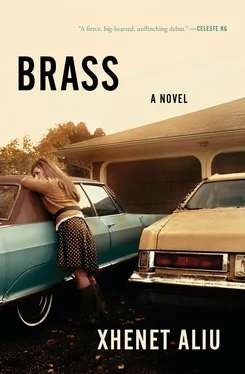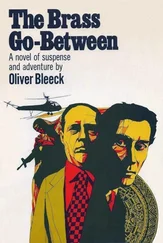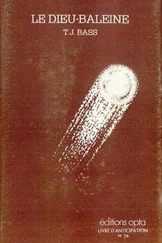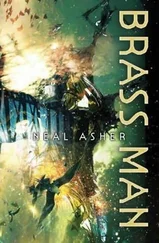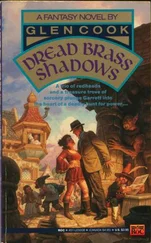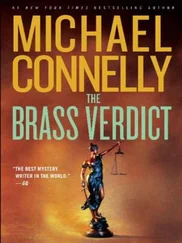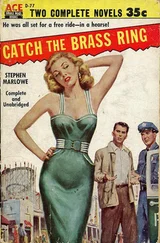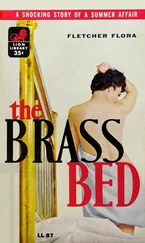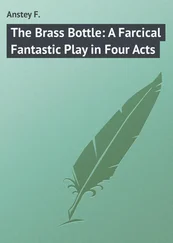“Free,” your mother repeats.
“Yes, free.”
“Okay.”
“Do you want to ask me why?”
“I don’t know,” she says. “Probably not.”
“See?” you yell. “You just want to hear me repeat what you say. You don’t even want to know what I’m really thinking.”
“Fine, fine,” she says. “Why did you feel free?”
You have to compose yourself to answer, and when you do, it doesn’t have quite the eloquence you’d hoped it would.
“Because I did something, and something happened,” you finally say. “Something outside of my head. It wasn’t just some stupid promise of being good and something one day paying off.”
Your mother thinks about this, and you wait for a look of contrition, if not an outright apology. She opens her mouth for a second, then closes it, swallowing whatever she was about to say. The suspense is awful, worse for a moment than the physical pain, or the smell of freezer against your face. You hadn’t even realized before then that freezer had a smell, and it was that of delayed decay: a cavern that your mother seemed to believe would revive once-fresh things, and where they instead rested in perpetuity, encapsulated in an ever-thickening shell of frost.
“Luljeta,” she says, almost gently.
“Yeah?” you answer.
“But you didn’t win the fight.”
And with that you do burst into tears and run into your room, not because she reminded you of the obvious, but because she isn’t anywhere close to getting the point. It isn’t about winning or losing. It isn’t even about truth or lies, since your point was premised on an embellished story about standing up to Margarita, when all you really did was call out a factual error in her ethnic slurring. The point was about doing and being, making the little butterfly ripple that would eventually cause a tornado somewhere on the other side of the ocean, or at least a little chatter on the other side of the baseball field at Crosby High School. It’s almost better that it was all based on a lie, because it makes you realize that you can go back and revise your own history, and isn’t that almost as good as making your own future, being able to invent your own past as well? You almost want to thank NYU and Margarita for helping you see that, even if you can see it with only one eye for the time being.
At the very least, you’re still seeing things more clearly than your mother, who is standing outside the door, saying, “What? What did I do?”
—
Here’s what she did:
When you were a kid and she brought you along to the grocery store, every time you’d ask if you could have whatever gushy, Lunchables box of fluorescent wonder you passed on the General Mills–sponsored interior aisles, she’d grab the usual ShopRite brand pea-gravel granola bars and answer, Not now . Not No, not Hell no, but Not now . She must have read somewhere how important it is to instill in children a sense of hope, and for the longest time you held on, but now, at seventeen years old, you finally realize that you’re never, never getting that Go-Gurt.
Also: she promised you when you were little that she’d change your name someday, once you were old enough to not want to change it to Hermione. You’d get a normal first name and her last name, which was almost as unpronounceable as Luljeta but was at least shared with another couple of human beings in the world, instead of the last name you had, Hasani, which seemed like a weed growing in the vicinity of the skimpy Kuzavinas family tree. And by the time you had outgrown boy wizards, what you wanted instead of a new name was an explanation for the one you had, and what you got instead was a key chain with your name on it that she ordered special for you at some kiosk in the mall, so you could no longer be sad about the lack of personalized products that were available to Albanian bastard children. You had no keys for the key chain, and no answers to your questions, but you said thank you anyway, because you were sure this was part one in the explanation that was coming someday. Someday, you see, but Not now .
And: when you were too young to look after yourself without DCF intervening, she used to leave you with Mamie, your de facto guardian, which was often fine, because Mamie was mostly still able to stand until around 7:00 P.M., when Mr. Carlo Rossi would gently lull her to sleep. But there were also the not-fine times when, upon returning to Mamie’s house after an afternoon at Hamilton Park, you found her slumped on the floor in the kitchen, and you would panic and call your mother at work, and your mother would calmly instruct you to check Mamie’s breathing, roll her onto her side, and sit quietly in the living room until she was able to get authorization from her supervisor to leave for the day. See this? your mother would say when she finally arrived. This is why you don’t drink. The next day, when you were dropped off with Mamie again, Mamie would point to the door your mother had just exited in an angry huff and say, See this? This is why I drink.
And: she told you not to listen to Mamie on those days when Mamie would shake her head and tell you, God, you look just like your father.
And: she told you, God, you take after Greta, which seemed to you like a good thing, though your mother always seemed slightly concerned when she said it. Maybe she was afraid that once you flew the nest, you wouldn’t bother to come home for most holidays like Greta, her too-good-for-everyone sister. You wondered where one drew the line between good and too-good, and if that was something you needed to be concerned about.
And now: she stands outside your door for ten more minutes, ice cube clinking in her own glass of wine, until she’s ready for a refill. Then she walks away saying, “Fine, if that’s the way you want to be,” as if she’s ever before acknowledged that wanting and being have anything to do with one another. You feel like you have some version of that disease which makes people believe that their limbs aren’t really theirs, so they travel to Indonesia and pay doctors big American dollars to amputate their not-their arm or not-their leg, only you have a version where you feel like you ended up in a family that isn’t really yours, surrounded by bodies that are just a little off. The thought occurs to you now, for the first time, in your bedroom with a now-warm Lean Cuisine compress over your eye, that maybe you were born into the right family but just ended up with the wrong half of it. Maybe it’s time to correct that, get proactive, which, you’ve learned today, can get you bruised and bloody but can also get you moving. Yeah, you think, it’s high time to get moving.
And then one night Bashkim wasn’t waiting outside for me before my shift. It felt like we’d been together for years by then but it was only a couple of months, just long enough for spring to finally stick and the air to stay warm after the sun went down. The first firefly of the season landed on my thigh while I stood by the back door of the Ross and I panicked and smashed it, my uniform now bioluminescent, and I thought: I should teach Bashkim that word, bioluminescent, something I remembered from an earth sciences class back in middle school, except I couldn’t remember if bioluminescence was a real thing or if it was something like alchemy, nice to think about but debunked by actual science. Then I thought that it had to be real, because my skirt still had a faint yellow light to it, as if I was some raver whose glow stick had sprung a leak while she rolled on E and made out with strangers in enormous jeans and vintage Adidas jackets. I’d read about raves in places like Sassy magazine, but the closest I’d ever come to being part of something like that was doing the hokey pokey at the end of the afternoon free-skate session at RollerMagic. I wanted to go to a rave, or to one of those three-story dance clubs in New Haven, and put on heavy eyeliner and pay outrageous cover charges and lean against velveteen so crusted with fluids that I wouldn’t dare sit on it, but me and Bashkim had never so much as gone to the movies together. The week before we’d spent date night at the laundromat while he washed his clothes, except I was the one who actually did the work while he stood and leaned against the dryers, crunching on Chiclets from the March of Dimes candy machine. I was thinking that I was going to try to talk him into an actual night out at a place that accepted currency other than quarters, and that’s when I realized that it was already ten minutes past my starting time, and Bashkim hadn’t even shown up for our standing date, never mind my fantasy one.
Читать дальше
